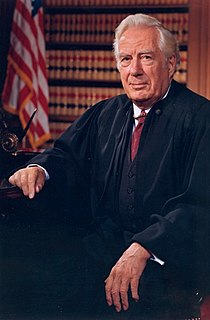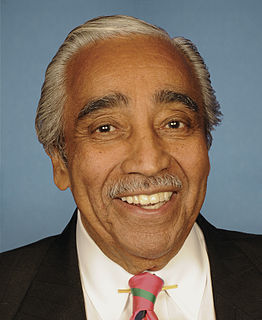Top 812 Draft Quotes & Sayings - Page 14
Explore popular Draft quotes.
Last updated on April 23, 2025.
The men who wrote the First Amendment religion clause did not view paid legislative chaplains and opening prayers as a violation of that amendment... the practice of opening sessions with prayer has continued without interruption ever since that early session of Congress. It can hardly be thought that in the same week the members of the first Congress voted to appoint and pay a chaplain for each House and also voted to approve the draft of the First Amendment... (that) they intended to forbid what they had just declared acceptable.
You want to come in and prove yourself early. Obviously, it is a responsibility being drafted that high to come in and play well and to make an impact. If not, youre going to get cut. So you have to come in, make the team, have an impact and do something special. And I feel that, obviously, internally. I feel an obligation to myself to do that but obviously the organization, the fans, this community. I mean, they dont want to see a first-round draft pick be a bust, so I feel I have to come in and hopefully make an impact early.
This afternoon, burn down the house. Tomorrow, pour critical water upon the simmering coals. Time enough to think and cut and rewrite tomorrow. But today-explode-f ly-apart-disint egrate! The other six or seven drafts are going to be pure torture. So why not enjoy the first draft, in the hope that your joy will seek and find others in the world who, by reading your story, will catch fire, too?
When I pick up a pencil, that this is a rough draft. This is not going anywhere, and no one's going to see it. You have permission to make all the mistakes you want. It signals freedom to me, and it signals mistakes. Then when I put it on the computer, a different part of my brain kicks in and I really evaluate every single word and sentence and make decisions. I like that step of polishing while I'm rewriting the entire thing, not just cutting and pasting. Really putting in every word and making a decision: is this something I can stand by?
And yet, within her anxiety, secured there like a gemstone, she carries the cool and curious power of occasionally being able to see the world vividly. Clarity bursts upon her a spray of little stars. She understands this, and thinks of it as one of the tricks of consciousness; there is something almost luxurious about it.. The narrative maze opens and permits her to pass through. She may be crowded out of her own life - she knows this for a fact and has always know it - but she possesses, as a compensatory gift, the startling ability to draft alternative versions.
This, more than anything else, is what I have never understood about your people. You can roll dice, and understand that the whole game may hinge on one turn of a die. You deal out cards, and say that all a man's fortune for the night may turn upon one hand. But a man's whole life, you sniff at, and say, what, this naught of a human, this fisherman, this carpenter, this thief, this cook, why, what can they do in the great wide world? And so you putter and sputter your lives away, like candles burning in a draft.
The only thing I might have noticed [and this is pretty anecdotal] is that there is some tendency to need to be taught that 'writing is rewriting' - maybe more of a sense than was pervasive 10 years ago that the first or second pass of a story is sufficient. That is an idea that is easily dislodged, but I suspect it might have something to do with the turnaround time re: blogging and so on - this sense that there is some essential truth about a first draft that one runs the risk of "ruining" by coming back to it.
I write my first draft by hand, at least for fiction. For non-fiction, I write happily on a computer, but for fiction I write by hand, because I'm trying to achieve a kind of thoughtless state, or an unconscious instinctive state. I'm not reading what I write when I wrote. It's an unconscious outpouring that's a mess, and it's many, many steps away from anything anyone would want to read. Creating that way seems to generate the most interesting material for me to work with, though.
Listen. Look. Desire is a house. Desire needs closed space. Desire runs out of doors or windows, or slats or pinpricks, it can’t fit under the sky, too large. Close the doors. Close the windows. As soon as you laugh from nerves or make a joke or say something just to say something or get all involved with the bushes, then you blow open a window in your house of desire and it can’t heat up as well. Cold draft comes in.
Architecture was, or is, a kind of hobby, an inclination I have to fiddling around and building things. Putting up shelves or cupboards, or making tools, or designing houses ... it always has a functional or social motivation. If social changes are in the air, I am gripped immediately by the desire to build, and I think that I accelerate or anticipate changes in my life by doing so, at least in draft. In the case of my house, that was anticipation: in other words, first build, then change one's life.
I write very raw, ugly, illiterate first drafts very quickly (novels are always in first draft in under a year) and then I spend years and years fine-tuning, revising, editing, etc. What inspires me? Who knows. I am not inspired that much. That’s why I write long form fiction - I am not much of a short story writer. Ideas come seldom, but when a good one comes, I really stick to it and see it out. I’m a problem-solver - I've never thrown out an entire manuscript; I've always forced myself to repair it until it was a lovable thing again.
Think of what big governments have gotten up to in this century : not one, but two world wars, the gulag, the holocaust, aerial bombing of civilian population centers, the Berlin Wall, nuclear explosions, the post office. A wicked individual might want these, but he wouldn't have the cash and connections to get them. A villainous corporation could afford them but has to market the products. The Vietnam draft would be a tough sell for even the most fiendish businessmen. "Get shot! Get killed! Get diseases from foreign women who despise you in their hearts!"
A story went the rounds about a San Franciscan white matron who refused to sit beside a Negro civilian on the streetcar, even after he made room for her on the seat. Her explanation was that she would not sit beside a draft dodger who was a Negro as well. She added that the least he could do was fight for his country the way her son was fighting on Iwo Jima. The story said that the man pulled his body away from the window to show an armless sleeve. He said quietly and with great dignity, "Then ask your son to look around for my arm, which I left over there.
I start my process hand written, and then I dump it in. It's like you're getting a second draft 'cause when I put it in the computer, I fix it and change stuff. That's my process. I picked that up from speaking to Neil Gaiman and Joe Hill. I was messing around with the idea of starting to write more, writing a book and doing things like this, and I reached out for advice. They were like, "Oh, we hand write, and then we dump it all in." I was like, "Great! There's no more blank pages."
In April, I asked my staff to determine if Senate rules and relevant laws would allow me to direct the trustees to sell any remaining HCA stock. In May, my staff worked with outside counsel and with the Senate ethics committee staff to draft a written communication to the trustees. After obtaining pre-approval by mid-June from the Senate ethics committee, I issued a letter directing my trustees to sell any remaining HCA stock in my family's trust.
I often wonder: suppose we could begin life over again, knowing what we were doing? Suppose we could use one life, already ended, as a sort of rough draft for another? I think that every one of us would try, more than anything else, not to repeat himself, at the very least he would rearrange his manner of life, he would make sure of rooms like these, with flowers and light ... I have a wife and two daughters, my wife's health is delicate and so on and so on, and if I had to begin life all over again I would not marry. ... No, no!
Digression is my passion. I love telling the main stories, but in some ways, what I love most is using those narratives as a way of stringing together the interesting stories that people have kind of forgotten, and that are kind of surprising. The problem is, how do you pare stories away so that the book doesn't become a distracting jumble of material, and readers lose focus? In my experience, there's really only one way to do that. I pack it all in with the rough draft, then count on myself and my trusted readers to tell me what's good and what's not good.
Writing helped to have jobs that involved running around, pushing things like dish carts and wheelbarrows. It would be hard to sit at a desk all day, and then come to sit at another desk. Also, it helps to abandon hope. If I sit at my computer, determined to write a New Yorker story I won't get beyond the first sentence. It's better to put no pressure on it. What would happen if I followed the previous sentence with this one, I'll think. If the eighth draft is torture, the first should be fun. At least if you're writing humor.
Perfectionism is the voice of the oppressor, the enemy of the people. It will keep you cramped and insane your whole life, and it is the main obstacle between you and a shitty first draft. I think perfectionism is based on the obsessive belief that if you run carefully enough, hitting each stepping-stone just right, you won't have to die. The truth is that you will die anyway and that a lot of people who aren't even looking at their feet are going to do a whole lot better than you, and have a lot more fun while they're doing it.
I always write a draft version of the novel in which I try to develop, not the story, not the plot, but the possibilities of the plot. I write without thinking much, trying to overcome all kinds of self-criticism, without stopping, without giving any consideration to the style or structure of the novel, only putting down on paper everything that can be used as raw material, very crude material for later development in the story.
Each of the Iraqi children killed by the United States was our child. Each of the prisoners tortured in Abu Ghraib was our comrade. Each of their screams was ours. When they were humiliated, we were humiliated. The U.S. soldiers fighting in Iraq - mostly volunteers in a poverty draft from small towns and poor urban neighborhoods - are victims just as much as the Iraqis of the same horrendous process, which asks them to die for a victory that will never be theirs.
As businessmen caught a glimpse of the potentialities inherent in endlessly expanding the wants of people under consumerism, forced draft or otherwise, many began to see blue skies... What was needed was strategies that would make Americans in large numbers into voracious, wasteful, compulsive consumers-and strategies that would provide products assuring such wastefulness. Even where wastefulness was not involved, additional strategies were needed that would induce the public to consume at ever-higher levels.
I have friends who are capable of writing a very rough draft and then going back and embroidering - they're sort of the cathedral builders of fiction. I never really know what I'm doing, and all my pleasure's on the level of the line. It's a weird way to move forward. It's kind of like a way to caterpillar your way through these great woods. The best ones, whatever I feel like I'm writing about, some other secret thing will begin to come into focus.
I also think there are prices too high to pay to save the United States. Conscription is one of them. Conscription is slavery, and I don't think that any people or nation has a right to save itself at the price of slavery for anyone, no matter what name it is called. We have had the draft for twenty years now; I think this is shameful. If a country can't save itself through the volunteer service of its own free people, then I say: Let the damned thing go down the drain!
The use of our military in combat should first require declaration of war. I have long called for reinstating the military draft, simply because I believe strongly that a national decision to go to war must also include a broad commitment to share its burdens. Whenever Congress decides to fund a war or other U.S. combat activities, it must provide a means to pay for it-then and there-not later. If we don't have the will to fully share the burdens of war, then we have no right to send our sons and daughters into harm's way.
A man's liberal and conservative phases seem to follow each other in a succession of waves from the time he is born. Children are radicals. Youths are conservatives, with a dash of criminal negligence. Men in their prime are liberals (as long as their digestion keeps pace with their intellect). The middle aged run to shelter: they insure their life, draft a will, accumulate mementos and occasional tables, and hope for security. And then comes old age, which repeats childhood - a time full of humors and sadness, but often full of courage and even prophecy.
[W]hich category of crimes does the State pursue and punish most intensely? [T]hose against private citizens or those against itself? The gravest crimes in the State's lexicon are almost invariably not invasions of private person or property, but dangers to its own contentment, for example, treason, desertion of a soldier to the enemy, failure to register for the draft, subversion and subversive conspiracy, assassination of rulers and such economic crimes against the State as counterfeiting its money or evasion of its income tax.
Ideas come at any moment -- except when you demand them. Most ideas come while I'm physically active, at the gym, with friends, gardening, so I always carry pen and paper. My first draft is always written in longhand. But once the first dozen chapters, more like short stories, are written, then momentum builds until I can't leave the project until it's done.
There are all sorts of theories and ideas about what constitutes a good opening line. It's tricky thing, and tough to talk about because I don't think conceptually while I work on a first draft -- I just write. To get scientific about it is a little like trying to catch moonbeams in a jar. But there's one thing I'm sure about. An opening line should invite the reader to begin the story. It should say: Listen. Come in here. You want to know about this.
The reason any conservative's failing is always major news is that it allows liberals to engage in their very favorite taunt: Hypocrisy! Hypocrisy is the only sin that really inflames them. Inasmuch as liberals have no morals, they can sit back and criticize other people for failing to meet the standards that liberals simply renounce. It's an intriguing strategy. By openly admitting to being philanderers, draft dodgers, liars, weasels and cowards, liberals avoid ever being hypocrites.
Daytona is a restrictor-plate race and, unlike Daytona, guys can't get in a line at Phoenix and go to the front. Daytona and Talladega (Ala.) have always just been two different forms of racing. With the draft being so important at those two tracks, it's more of a team deal than an individual deal. What happens at Phoenix and the races after that has to be done on your own. You can't help each other at Phoenix. You just have to go race.































